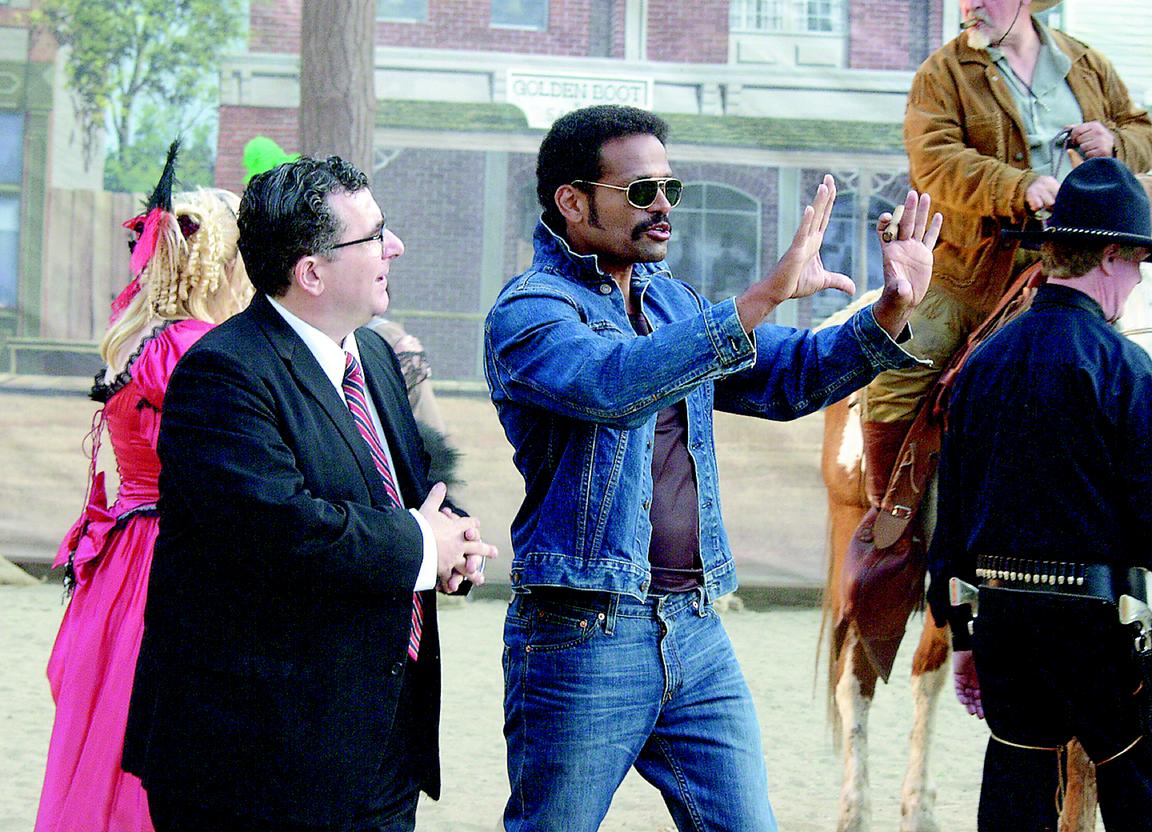There are two reasons why Mario Van Peebles' new film Baadasssss! avoids this trap, emerging as a bracing look behind the scenes of the moviemaking industry. First of all, it's a true story—a valuable history lesson for pop culture historians. Second of all, Van Peebles is as much of a Hollywood outsider as a Hollywood insider.
Though the handsome, young director/actor has made a name for himself on mainstream movie marquees (directing New Jack City, starring in Ali), his father is pioneering indie filmmaker Melvin Van Pebbles. Van Peebles the younger was raised on his father's countercultural values and thrust into the seat-of-your-pants world of independent filmmaking at a very young age. So it is more than fitting that Mario should choose to write, direct and star in a film based on his father's autobiography.
Baadasssss! chronicles Melvin Van Peebles' early '70s attempts to launch his breakout film. His first studio film, a successful comedy called Watermelon Man, had impressed executives, who were eager to capitalize on the growing trend toward “black cinema.” Van Peebles responded by pitching his follow-up, Sweet Sweetback's Baadasssss Song. The film was to be a “serious as cancer” call to arms, the story of an urban hustler who becomes a militant fugitive in the face of racism, oppression and corruption. Needless to say, Hollywood was scared shitless by the idea.
Baadasssss! shows Van Peebles' increasingly desperate attempts to write, direct, produce, star in and distribute the film, which he is convinced will capture the consciousness of black America. Van Peebles (played ably by his son) is portrayed as a righteous con man hustling hard to bring his vision to life. Since they can't afford to pay any union workers, Van Peebles fosters the idea that he's making a porno film. Since the unions won't have anything to do with porno films, he manages to fly under their radar. He saves on actors' fees by casting friends and family. He scrapes together production funds from every place he can beg, borrow or steal. He sells off everything he owns, and goes frighteningly into debt. If you're looking for a primer on all the seemingly insurmountable odds that go into making a motion picture, this is it.
Van Peebles directs with a gritty, anything-goes style. At first, he seems a little too caught up in lionizing his father. Scenes in which the elder Mr. Van Peebles sweats out his new script have all the trippy, artistic self-sacrifice of a Carlos Casañeda book. Eventually, though, Van Peebles settles into the reality of the situation. He doesn't soft-peddle his own rough childhood and shows Melvin as an often-absent father figure and frequent autocrat more than willing to burn those around him to get what he wants. Young actor Khleo Thomas does a good job as Mario's 13-year-old alter-ego, a kid both in awe of his father's skills and frightened of his reckless spirit. Occasionally, a bit of stunt casting sticks out (Adam West, David Alan Grier, Sally Struthers), but the early '70s vibe remains pretty consistent.
Lively and energetic, the film is shot much like a documentary would be. Occasionally, the drama is broken up with the actors addressing the camera (in character) and narrating events, or giving their own editorial comment. It's a fascinating approach, and gives the film an extra stamp of authenticity.
Baadasssss! does an amazing job of expressing the hard work that goes into making a film and the sheer stones it takes to break a few rules. But those are pretty much givens. As grueling as Van Peebles' journey is, we know it will end in triumph, spawning an entire generation of blaxploitation films. What pushes Baadasssss! over the edge is its confidence in the idea of film as an art form. Melvin Van Peebles never doubted that a popular piece of entertainment could spark a revolution. Mario Van Peebles feels the same way. Though it's impossible that Baadasssss! will have the same cultural impact as Sweet Sweetback's, it has provided him with his sharpest film to date, a deeply personal flashback built around that rare, ecstatic moment when a piece of art reaches an audience and influences a generation.



